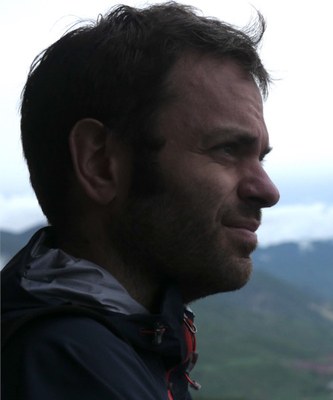 What are the contents and goals of your research team?
What are the contents and goals of your research team?
The main aim is to study the formation of natural energy sources in the depths of the Earth. These energy sources are similar to those we need in modern society, such as methane and hydrogen, but have a different, non-biological origin. Their formation tens of kilometres in depth is not directly exploitable by man, but it could represent a fundamental source of energy to feed microscopic life forms that populate the underground, the so-called deep biosphere: an entire ecosystem hidden from our sight, but which is of increasing interest to the world of research. We may also discover, in the future, that these deep energy sources were instrumental in enabling the emergence of life on Earth and possibly on other planets.
What are the elements that make this research particularly innovative in terms of content and/or method?
The presence of methane and hydrogen at great depths in the Earth's interior has been speculated and discussed for more than a century. Now, for the first time, with the “DeepSeep” project we are trying to collect this methane and analyse it. We do this by exploiting the unique characteristics of our planet, which allow very deep rocks to rise to the surface thanks to the movements of the tectonic plates of the Earth's crust. There have been other attempts to identify this special type of methane in the past, but only in samples taken from the depths within the biosphere, and thus contaminated with methane of biological origin.
Where do you mainly carry out your research activities?
Much of our preliminary work takes place in the field, where we collect the samples, and then in the laboratory, where we carefully sort them to ensure their origin in the depths and the presence of methane and hydrogen in them. With the ERC funding, I have been able to build a laboratory specialised in extracting and analysing small fluid inclusions trapped inside minerals. After about eighteen months of collecting samples and data we finally have the first results, which I am very excited about.
What societal need does the project respond to?
The main research the ERC supports is what in Italy we call basic research, but which abroad is more respectfully known as “fundamental”. This project touches on extremely important topics for fundamental knowledge, such as the origins of life and the search for life on other planets or even planetary colonisation. To address these scientific issues, making a comparison with the world of sports, one should not attempt to run a hundred-metre sprint, but rather to tackle a marathon. This is research that is carried out over the long term, and our contribution will be useful to future scientists.
What do you see as the benefits or impacts on society? Can you give us some concrete examples?
In the short term (to keep up the metaphor, say in the space of a 110 metre hurdle), “DeepSeep” will allow us to gain a greater insight into a natural process that for a few billion years has been doing what we humans are trying to reproduce in the laboratory for energy purposes. Nature started evolving and solving problems long before man tried to do the same and, in its complexity, often gives us important insights. The natural processes we are studying with 'DeepSeep' produce energy sources from simple reactions between water and minerals, some of which are very abundant on Earth. As regards concrete developments, although we are dealing with basic research, it could also have practical future implications, if implemented industrially, by providing a form of unconventional energy. But to get there, we must first understand the complexity of the natural phenomenon. An additional benefit relates to the young students and researchers working on this research. Through this ERC project, we are creating a dynamic and international team in Bologna, with significant possibilities for creative scientific development that are very important for our discipline.
How far has your research project come? What results have you achieved so far?
We have understood how to identify the deep processes that generate methane and hydrogen and how to distinguish them from superficial ones. We have also developed protocols for extracting and analysing methane trapped in fluid inclusions, and we are obtaining the first results. We should soon be able to start estimating the amounts of methane and hydrogen produced in the depths by geological processes, each year and back through time. This will be a decisive step towards understanding how and where these fluids may have contributed to sustaining the deep biosphere, and what conditions would make these processes efficient in other planetary contexts.
When you heard that the project had won ERC funding, how did you feel? What does this recognition mean for your research path?
I had gone to Toronto, Canada, to receive an award. My partner had just got on a plane from Italy to join me. I had set my alarm for three o'clock in the morning to call her at her first stopover. As I was awake, I checked my emails, something you do nervously every ten minutes when you are waiting for the ERC results. The previous two years I had not been selected for funding, and the disappointment had been great. When I opened the e-mail I must confess I cried.
I believe that for many ERC winners, funding is not so much a sign of recognition as a chance to make their mark. It is difficult to be granted an ERC project, and as we are dealing with cutting-edge research, it is even more difficult to bring it to fruition. But being given the chance to try is really exciting!
RicERCatori in Evidenza is the column dedicated to the University of Bologna's cutting-edge research funded by the European Research Council-ERC and its protagonists.
